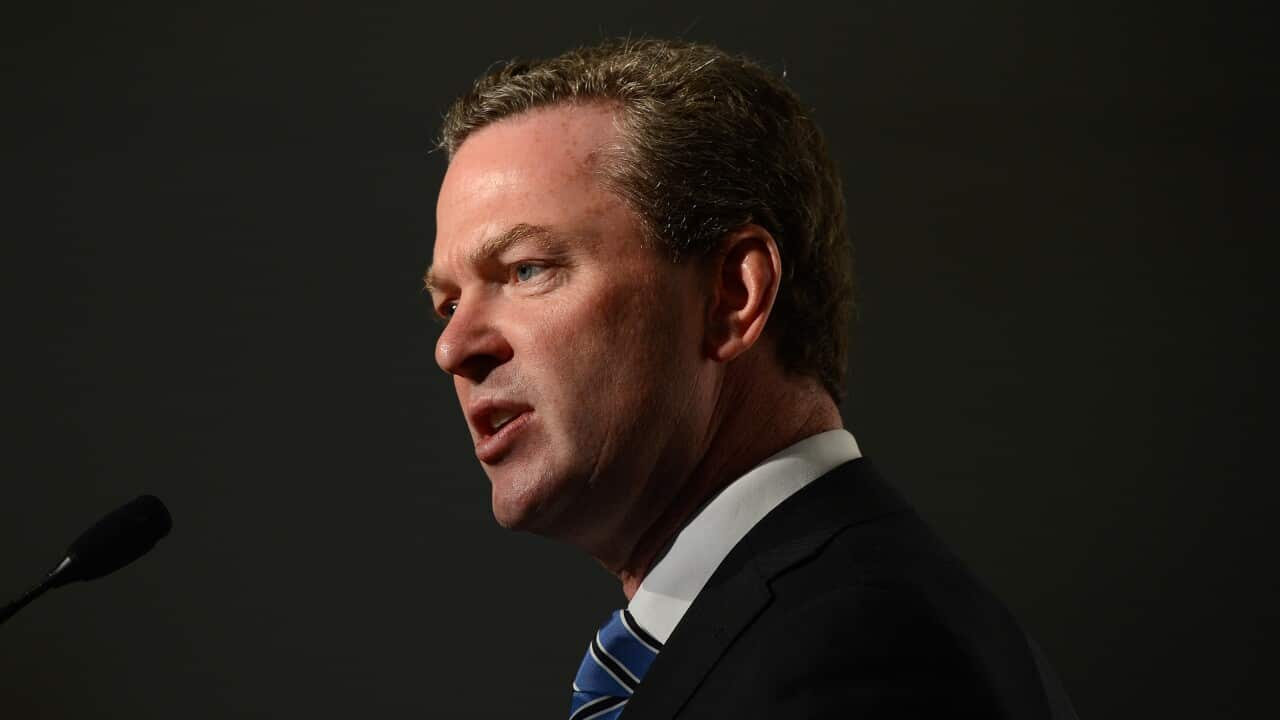One proposal is to axe compulsory fees for university student services.
The new government is also planning to drop Labor's targets to lift participation by disadvantaged students.
Under the current higher education system, university places are demand-driven.
This means that universities are funded to enrol as many capable students as they can attract.
Last year, there was a 21 per cent increase in new student numbers.
But concerns have been raised about the abilities of some students, many of whom gained places with university entrance scores below 50.
Education Minister Christopher Pyne says a review will assess whether the demand-driven system has been having a negative impact on the quality and reputation of higher education.
In announcing the review, he has not mentioned re-introduction of a cap on the number of university places available - though he told the ABC in July there were no such plans.
"We have no plans to restore the cap. We do believe that the more students who are doing university, the better. But we do need to address concerns in the industry that there is a diminuition of quality. We want to restore the international student market, and that will get revenues flowing to universities again."
Mr Pyne has also confirmed that he plans to once again get rid of compulsory fees collected by universities to pay for student services and amenities on campus.
Compulsory student union fees were scrapped under the Howard government in 2005, but brought back in a different form under Labor.
Mr Pyne says the Coalition will also abandon Labor's target to increase participation by those from low socio-economic backgrounds to 20 per cent by 2020.
Acting Labor leader Chris Bowen says the Coalition is already starting to break its promises.
He says students from disadvantaged backgrounds look like being the biggest losers.
"The demand-driven system of university funding is what has driven the massive expansion of Australia's universities over the last three or four years. 200,000 extra university places were created. To abolish the demand-driven system would be a blow to Australia's regional universities to Australian Catholic universities, to universities right across the country that have been important in driving this massive expansion in university allocations."
Vice Chancellor of Canberra University, Professor Stephen Parker, supports a review of the higher education sector.
Professor Parker says he thinks the review will find the current demand-driven system has been working well overall, but might need fine-tuning.
"I think it something that is worth a review. Now I know there are some Vice Chancellors who do hold the view that by expanding the system to the extent that we have we are compromising quality. I am not actually one of those I think the data when it's really examined will show that we are giving every-one that has a reasonable chance of success that chance. There are, however, some people with ATARs below 50 are being admitted into some universities and I think that does raise some questions about the perceptions of the system."
The Education Minister has ruled out changes to the HECS system.
But he has not said if the Coalition will wind back Labor government funding cuts of almost three-billion dollars to the higher education sector.
Caroline Perkins, from the Regional Universities Network, says if they go ahead, those funding cuts will have a big impact on regional Australia.
"This isn't just a blow for regional universities and their students. It's also a blow for our communities because as many people in regional Australia would know, the university is actually the centre of regional economic, social, and cultural development."
By Amanda Cavill
Share

